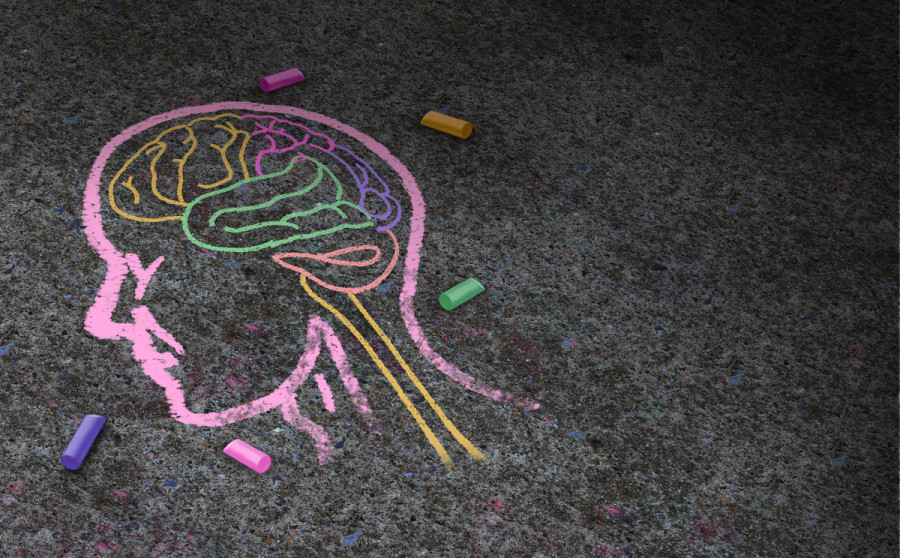Columns
Unravelling mental health
It is important to understand the spectrums and different shades of mental health.
Diva Shrestha
The Covid-19 pandemic has shed light on the rising challenges that misunderstood mental health brings. This is a difficult time for all of us. But, for some of us, the pandemic added a layer to an already challenging existence; for some, it could be the tipping point that will result in a life or death situation while for others, it added a trigger bringing to the surface memories of difficult times.
A survey conducted by Transcultural Psychosocial Organisation Nepal recently presented data that reveals the urgency that mental health matters require under the current circumstances. The data also indicates an increased need for understanding the spectrum within which each individual faces mental health challenges because many of the real challenges do not even make it to the statistics, making it more difficult to identify and provide adequate support.
This is personal
A few months ago, I was in an accident where I broke my leg that resulted in surgery, and hence required months of recovery time. For a person like me who identifies oneself as active and busy all the time, I was not prepared for the flurry of emotions that the resulting rest period brought.
I like to plan and keep a fairly consistent routine which brings certainty to my days. Suddenly, the certainties disappeared along with my mobility. I understood it was temporary and part of the recovery process; but when your identity is attached to the activities that you perform during the day, it was difficult to detach myself from the reality that, from that particular point until I was well recovered, I was not bringing value to this world—a value that I associated primarily with my work.
Pre-accident, when things got difficult and anxiety-laden, I resorted to exercising as an outlet and surrounding myself with strangers at a café to be productive. Without these outlets, my mental well-being began to suffer. I found myself diving into a certain sadness, and could not shake off this feeling of losing myself because I was now stuck in this new reality over which I did not have control. I have read enough about mental health challenges and currently work in the space of behaviour and mindset change, and I realised that it was more than just sadness that I was experiencing.
However, it was much harder to explain my condition because I did not demonstrate behavioural patterns associated with the definition of mental health disorders such as depression. I was just 'sad' because I was in an accident. That is what my family and friends—in a genuine attempt to help and understand me—said. But this throbbing ache in my thoughts did not go away even as I began walking and going to work.
Fast forward a few months, and the entire world was forced indoors because of the pandemic. At the beginning, I was worried that my emotions would get the better of me; and all the work that I had done to come out of the mental slump would be rendered pointless. I prepared, but there were, and are, certainly good and bad days. After a few weeks, I received empathetic messages from my close friends about the emotions that we were, and are, currently facing because of the forced lockdown. The shared experiences made supporting each other through these uncertain times easier.
Understanding the shades
I share my experiences because mental health challenges have always been defined or portrayed in the most extreme of ways. The news and literature through which we generally learn about this topic tends to focus on extreme cases that result in suicide, self-harm of sorts or manic behaviour. This topic also makes its rounds on social media when a beloved celebrity is lost to mental health struggles. The available statistics generally do not take into account those who are struggling and are on the verge of resorting to these outlets. Identifying mental health challenges thus becomes even more challenging because of these misinterpretations.
Through my own experiences, I have learned that mental anguish does not have one source, one origin, one journey or one finality. In addition to this, we tend to defy the mere existence of mental health challenges by simply thinking that we are immune to them because of our family status, educational attainment or positioning in society. We excel at this method of deflection in Nepal, and refuse to acknowledge the realities faced by ourselves and those near and dear to us.
Mental health challenges are also as unique as the individual experiencing them, which is another reason why such broad generalisation only adds to the misconstrued definitions and understandings. Therefore, it is first important to personalise mental health so that we are not drawing a direct comparison between individuals and are taking the time to understand each unique individual. For the person undergoing these experiences, it is important to self-reflect and seek professional support in order to manage it better. For those who are noticing others undergoing these challenges, it is incredibly important to show support without judgement. Support in these cases might mean that you suspend the need to provide answers or solutions, and simply hold the space for the person to understand themselves and begin their journey to recovery—no matter how long it will take.
It is also important to hold conversations about the diversity of experiences and shed light on stories that are not always of extreme cases. This way, we do not shy away from educating ourselves, and thus contribute to raising awareness about the different shades of mental health concerns. Navigating the existent and emerging mental health challenges within our immediate communities and broader societies will play a vital role when it comes to defining this new normal. A normal that, in different shades and spectrums, will stick with us for a considerable and uncertain future.
***
What do you think?
Dear reader, we’d like to hear from you. We regularly publish letters to the editor on contemporary issues or direct responses to something the Post has recently published. Please send your letters to [email protected] with "Letter to the Editor" in the subject line. Please include your name, location, and a contact address so one of our editors can reach out to you.




 9.89°C Kathmandu
9.89°C Kathmandu















